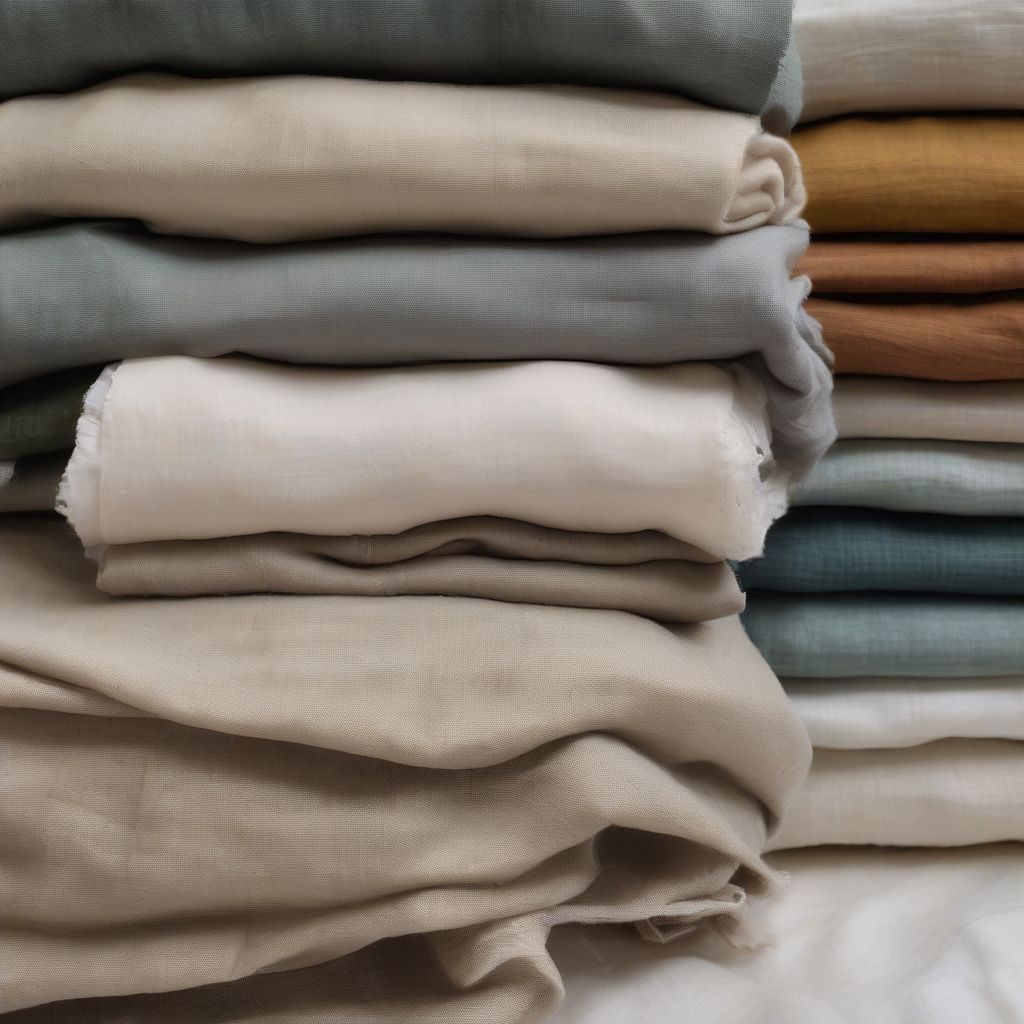Imagine slipping into a shirt that feels as soft as a gentle breeze, knowing that its creation didn’t cost the Earth. That’s the promise of eco-conscious fabrics. As a nutritionist and meal prep coach, I’m passionate about making healthy choices for our bodies and the planet. Choosing eco-conscious fabrics is a powerful way to align your wardrobe with your values.
What are Eco-Conscious Fabrics?
Eco-conscious fabrics, also known as sustainable fabrics, are created with a focus on minimizing their environmental impact throughout their lifecycle – from the growth of raw materials to production, use, and even disposal. These fabrics prioritize:
- Reduced Water Usage: Conventional cotton farming consumes massive amounts of water. Eco-conscious options like organic cotton and Tencel utilize significantly less water.
- Lower Emissions: The fashion industry is a significant contributor to greenhouse gas emissions. Eco-conscious fabrics aim to reduce this impact through sustainable farming practices and eco-friendly production methods.
- Biodegradability: Unlike synthetic fabrics that can linger in landfills for centuries, many eco-conscious fabrics decompose naturally, returning nutrients to the earth.
- Ethical Practices: Fair wages, safe working conditions, and responsible sourcing are paramount in the production of eco-conscious fabrics.
Exploring Popular Eco-Conscious Fabrics
Ready to dive into the world of sustainable style? Here’s a closer look at some of the most popular eco-conscious fabrics:
1. Organic Cotton: A Classic Reinvented
Cotton, a beloved natural fiber, gets an eco-friendly makeover in its organic form. Free from harmful pesticides and fertilizers, organic cotton farming protects biodiversity, conserves water, and promotes healthy soil.
2. Linen: Timeless Elegance from Flax
Derived from the flax plant, linen is a durable and breathable fabric known for its effortless elegance. Its natural resilience means linen garments can last for years, reducing textile waste.
3. Hemp: Strong, Versatile, and Sustainable
Hemp is a true sustainability superstar. This fast-growing plant requires minimal water and pesticides, and its fibers are naturally strong and durable, making it ideal for clothing, bags, and even building materials.
4. Tencel (Lyocell): The Wonder Fiber from Wood Pulp
Derived from sustainably harvested wood pulp, Tencel is a remarkable fabric that combines luxurious softness with eco-friendly attributes. Its closed-loop production process minimizes waste and water usage.
5. Recycled Materials: Giving New Life to Old Fabrics
Recycled fabrics, made from post-consumer waste or pre-consumer scraps, offer a fantastic way to reduce textile waste and lessen the demand for virgin materials.
 Eco-Friendly Fabrics Showcase
Eco-Friendly Fabrics Showcase
The Benefits of Choosing Eco-Conscious Fabrics
Embracing eco-conscious fabrics extends far beyond looking good – it’s about feeling good about your choices and their impact on the world.
- Healthier for You: Conventional fabrics often contain harsh chemicals that can irritate sensitive skin. Eco-conscious options, free from harmful substances, are gentle on your skin and overall well-being.
- Kinder to the Planet: By choosing eco-conscious fabrics, you’re actively supporting sustainable practices that protect our environment and conserve precious resources.
- Supporting Ethical Fashion: Choosing brands committed to ethical sourcing and fair labor practices empowers workers and promotes a more just and equitable fashion industry.
- Durability and Longevity: Many eco-conscious fabrics, known for their natural resilience, are incredibly durable and can last for years with proper care, reducing the need for frequent replacements.
Making Conscious Choices: Tips for Shopping Eco-Consciously
Ready to green your wardrobe? Here are some tips for shopping eco-consciously:
- Read Labels Carefully: Look for certifications like GOTS (Global Organic Textile Standard) for organic cotton and OEKO-TEX Standard 100 for fabrics free from harmful substances.
- Choose Quality Over Quantity: Invest in well-made, durable pieces that will stand the test of time, reducing the urge to constantly refresh your wardrobe.
- Support Sustainable Brands: Research brands and choose those committed to transparency, ethical practices, and eco-friendly materials.
- Consider Secondhand Shopping: Give pre-loved clothing a new life by exploring thrift stores, consignment shops, and online resale platforms.
- Care for Your Clothes: Proper washing and care can significantly extend the lifespan of your garments, further reducing your environmental impact.
The Future of Fashion: Embracing Sustainability
The shift towards eco-conscious fabrics is more than just a trend – it’s a necessary step towards a more sustainable and responsible fashion industry. As consumers, we have the power to drive change by choosing fabrics that are good for our planet and ourselves. By embracing eco-conscious fashion, we’re not just updating our wardrobes; we’re investing in a healthier and more beautiful future for all.
[amazon bestseller=”Sustainable Fashion”]
Conclusion
Choosing eco-conscious fabrics is a simple yet powerful way to align your wardrobe with your values. From organic cotton’s classic comfort to Tencel’s luxurious drape, there’s a world of sustainable style waiting to be discovered. By making conscious choices, we can collectively reduce our environmental impact, support ethical practices, and create a more stylish and sustainable future.
What steps are you taking towards a more eco-conscious wardrobe? Share your thoughts and eco-fashion finds in the comments below!
